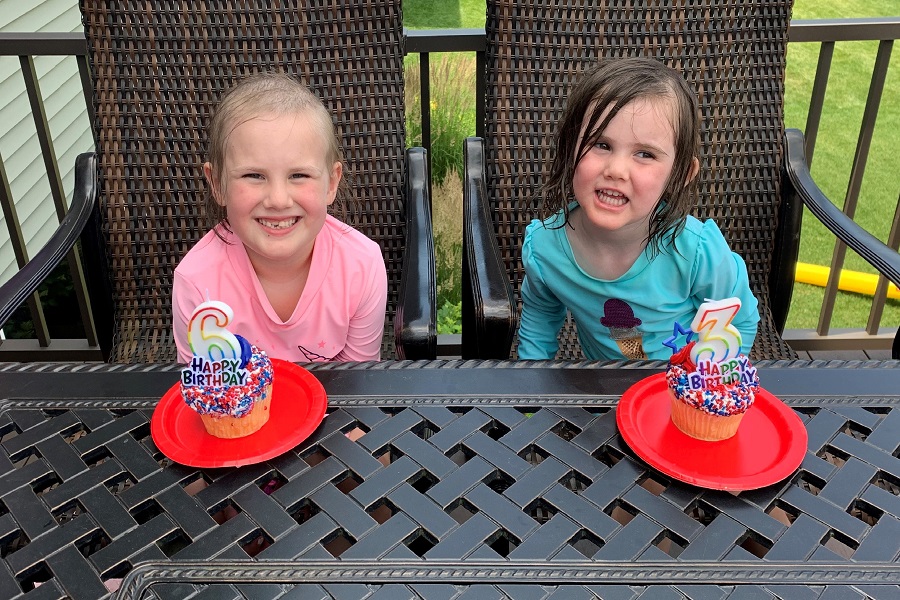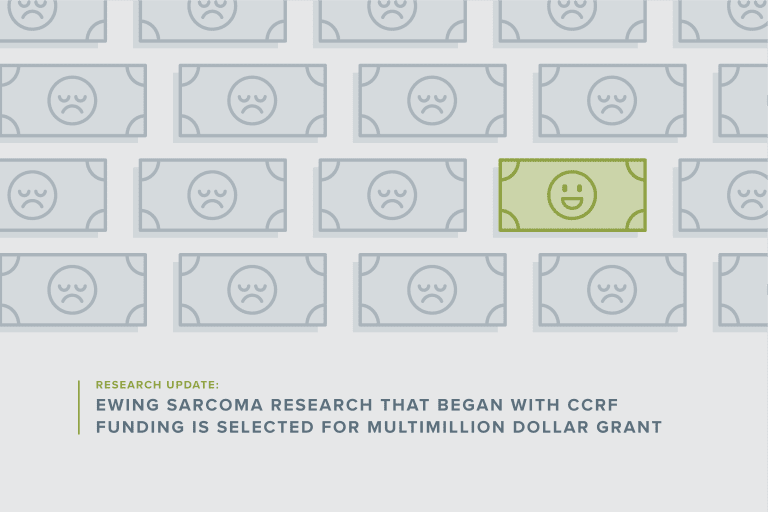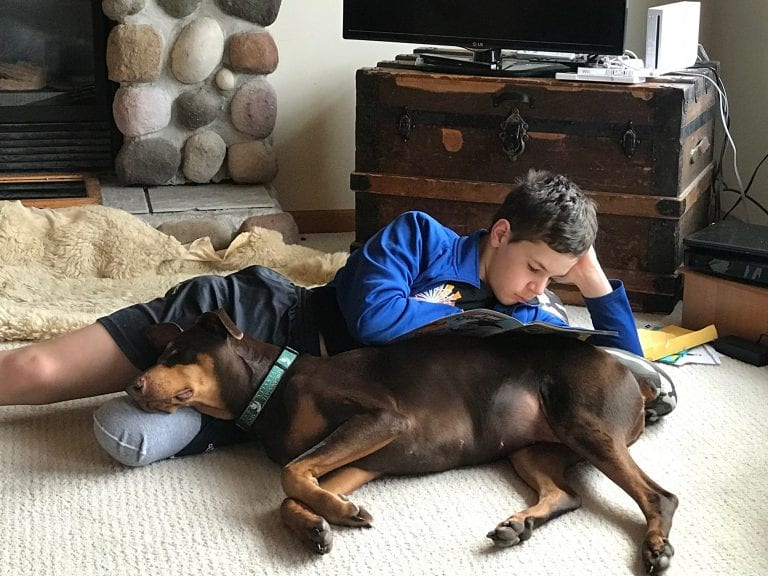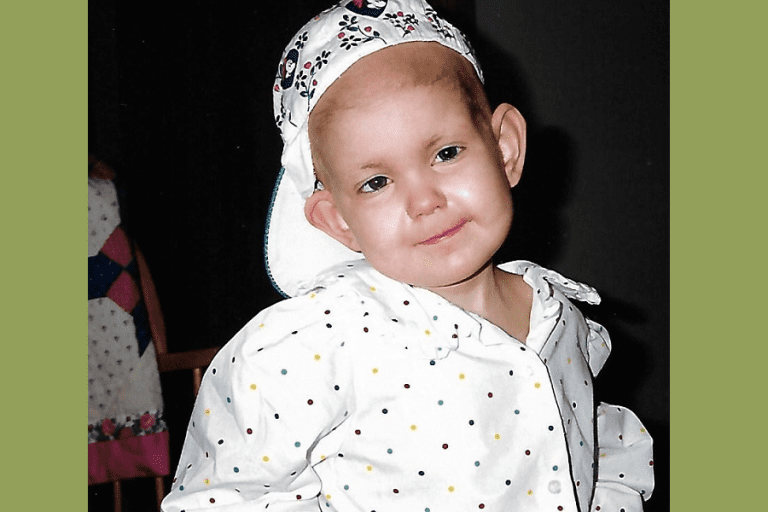Above: Harper (left) and her sister Faelyn celebrate their sixth and third birthdays.
“I just want to be me and not take so many medications.”
These were the heart-wrenching words Sarah and Kyle heard from their 6-year-old daughter Harper in the midst of her treatment for leukemia.
“She’s the happiest kid, and she’s very active and all over the place,” said Kyle. “She’s definitely the big sister, and she loves trying to make sure her and Faelyn (her sister) dress alike and do everything together. But in that first month of treatment, it was hard to watch her whole personality change. I can tell it frustrates her when her mind wants to do something, but her body just can’t. I remember watching her try to fly kites with her sister and was too tired to go more than two steps.”
The Beginning
On April 1, Harper’s doctor called Sarah to tell her the news that had been lurking in the back of her head ever since Harper started spiking frequent fevers in February. Tests for the flu and mono had come back negative, and a bone marrow biopsy had confirmed what Harper’s parents most feared. Her official diagnosis – acute lymphoblastic leukemia.
“Sarah broke down, and I took the phone from her,” Kyle remembers. “We had to immediately go into the mode of what’s next, what are we going to do, how are we going to tackle this.”
Harper was diagnosed on a Wednesday, and by Friday morning, she had a port placed in her chest, a small medical device that goes under the skin so doctors can access a vein to give Harper her chemotherapy treatments. She stayed inpatient for five days, with only Sarah allowed to stay with her because of the hospital’s restrictions surrounding COVID-19.
“It was so difficult not to be there with her,” Kyle said. “Sarah would call and fill me in every time they talked to the doctor, and I could be home with Faelyn, but it’s hard not to be there.”
Teaching Others About Cancer
In the midst of the pandemic, Harper keeps in touch with family and friends by sending them videos of her explaining the treatments she’s going through – she even recently took a video of herself getting her port accessed – a procedure that could be very scary for anyone, let alone a 6-year-old - so she can show her friends how it works.
“I’m so proud of the exposure she’s bringing to everyone about her cancer experience,” Kyle said. “She’s open to talking about it so people understand what kids go through. Before Harper was diagnosed we knew very little about childhood cancer, and I think our circle has learned so much just from how Harper talks about it.”
Kyle says he’s proudest of how smart Harper is - no matter what she’s been through, it won’t dull her sharpness. She’s been attending school virtually, which Kyle said was made a little bit easier by knowing that COVID-19 meant her whole class was learning virtually as well. She’s participating in a Spanish immersion program, and her parents are impressed every day at how much she’s learning despite going through the gauntlet of cancer treatment.
“I’m so proud of how smart and vocal she is, especially for her age,” Kyle said. “She’s very outspoken – if you’re wrong, she’ll let you know why you’re wrong and why she’s right. And at the same time, she’s so caring – she’ll do anything for her friends and she loves taking care of people.”
Kyle says Harper’s ability to listen and learn quickly has served her well during her difficult treatments – she understands what her medicines are and why she needs them, and she can explain it to family and friends and answer their questions. Kyle says he’s glad he and Sarah have been so open with Harper about everything, but they’re also glad she doesn’t quite understand the seriousness of cancer the way adults do.
“That’s the one thing we haven’t broached with her, the ultimate seriousness of it,” Kyle said. “She understands that these treatments are helping her, but we haven’t talked about how kids can die from this.”
A Major Life Change
Kyle says Harper’s diagnosis, especially at a time where a pandemic has made many parts of normal life uncertain, has changed his perspective on nearly everything. One lesson that stands out – plan for everything; predict nothing.
“Having a kid with cancer means you have to be ready for constant change,” he said. “You try to plan things with people but if Harper spikes a fever, we’re going to the hospital. You can’t predict what’s going to happen, but we always have a bag with us so if we have to go, we have everything we need.”
Because Harper’s treatments knock down her immune system, she’s one of the many immunocompromised people who are most at risk if they contract any sort of infection or virus. Kyle said that COVID-19 has made it difficult for them to see friends and family, but it’s also helped his daughters understand why it’s so important to follow all the right precautions and stay safe.
“Because of COVID-19, they aren’t the only kids who can’t go to school and see their friends, and having distance learning has been a huge benefit for us,” he said. “But at the same time, you can’t get that in-person support from your extended family, and we can’t have Harper’s friends over to brighten her day. It’s a strange time.”
If You Could Go Back
Life looks completely different for Harper’s family than it did on April 1, when their cancer experience began. Kyle says if he could go back to that day, he’d have advice for himself about the uncertainties that still lie ahead.
“I’d tell myself, it’s going to be a tough road ahead, but the team you have around you is great, and they’re going to take care of your kid the best they can,” he said. “Trust them, listen, ask questions, even if something seems stupid or insignificant. They’re there to help you, and that’s what they love to do.”
Your Donation Makes Better Treatments Possible
Harper wishes she didn't have to make so many medications. Your donation supports research that will make it possible for kids like her to have better, safer treatments so they can get back to being kids.




